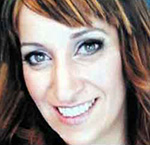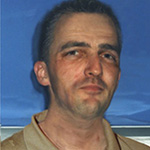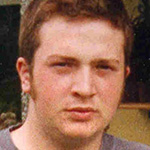CHARLOTTE Murray, Peter Quigley, Dilys Donnelly, Sean Ryan, Stefan Punch. These are just five people from a bank of more than 500 who are not expected to be with their families or loved ones this Christmas.
These Irish men and women are among the many hundreds of missing adults and children in Britain and Ireland currently listed as active cases on Britain’s Missing People charity’s website.
Some have been missing for a year or two, others for many decades, all – no doubt – for a variety of reasons.
But apart from their Irish connections, the one thing they all have in common is that their families have refused to give up on them.
They still hold a glimmer of hope, via the support of the national missing persons’ charity, that they may one day make contact or be reunited with their loved ones.
As Christmas comes around that yearning becomes ever more aching and the charity remains open and accessible to these families – and their missing people – throughout the festive season in order to support them at this “much tougher” time.
“Certainly families we know, that the charity supports, find Christmas a really tough time of year, primarily because people are reminded it’s a time of togetherness,” Missing People Chief Executive Jo Youle told The Irish Post this week.
“So when they look at an advert on TV or in shops, or at messages on cards, for the families it makes them feel like it’s a much tougher time. We have over 500 appeals live on our website at the moment and that translates into a lot of families out there who are waiting for news.”
But while the season can be tough it can also prove a time of increased hope for families and for the missing people themselves, according to Youle.
“I am really proud that our services are available to families all over the Christmas period, we are open every day to talk to the families in confidence as we know how hard this time is,” she said.
“I was talking to a family the other day whose son went missing in October, the thought that they would be bringing in the New Year without news of him is very painful for them,” she added.
“Of course every day is very tricky, but the season adds to it, in the same way that birthdays and anniversaries do. But we also reunite people every day and so there is a story of hope at Christmas which I think resonates as well – it may be a time that the person that is missing may get in touch, so it’s important that the team is there over Christmas and New Year.”
While the charity’s statistics reveal that over 85 per cent of reports of missing people will be resolved in the first two days of them going missing, with only around one per cent of people still missing a year later, there are some unfortunate cases which can last far longer.
“Our statistics show some good news,” Youle admits, “that people do come back, that people do get in touch and pass on a message through our services and that is often the start of them being back in contact with someone in their family. But then sadly there are those people who are missing in the longer term and we will be there for the families for as long as it takes – we will do publicity for them for days, months, years, whatever it takes.”
Among the Irish missing people currently on the charity’s books, Charlotte Murray, 33, was last seen in Dungannon, Co. Tyrone in 2012, Brendan Taaffe was last seen in Merseyside in 2010 and Dilys Donnelly, who has a distinctive green shamrock tattooed on her arm, was 59 when last seen in Stoke Newington in 1986.
Elsewhere 22-year-old Matthew Dennehey has been missing from his home in Brent, North London since 2012, while 15-year-old Arlene Arkinson went missing on August 13, 1994, after attending a disco in her hometown of Castlederg in Co. Tyrone, and has not been seen since.
On the Missing People appeal pages of these men and women – and many others – the words posted by the family members hoping to find them are often short and succinct – asking them to come home, telling them they love them and promising that everything will be ok.
Others simply want to learn if their loved one is still alive and hopes that they are well.
Despite the disparity in the cases - in the length of time they have been missing and the circumstances around their disappearance - the charity does find certain trends within the context of their removal from everyday life.
“Missing people tend to reflect a crisis point, but usually there is often a cry for help in there as well,” Youle explains.
“People are often really desperately in need of something, they may be experiencing a mental health breakdown or feeling unable to cope and maybe needing some time or space away, these are some of the things we tend to hear.
“But we also hear of situations where there has been an argument in a family, such as a young person having an argument about something that is very important to them,” she adds, “and we hear from people who say they didn’t really decide to go missing, rather they walked away from a situation and just kept on walking, they never turned around to go back.”
Regardless of the cause of their departure, the Missing People charity is confident that a number of people will be put back in touch with their loved ones over Christmas and the New Year.
“Our campaign for Christmas is all about encouraging missing people to get in touch and to ask people in general to support the charity to allow us to be a lifeline for these people and their families,” Youle said.
“Christmas is a time which does prompt missing people to pass messages through to their families, as well as people who feel like maybe it is time to come back or to have a conversation with somebody at home.
“For some families, even if it means the missing person is not coming back home, to get a message to say they are alive and ok is all they want.”
HOW you can support the Missing People charity:
To donate £3 to the charity text Hope to 70707.
Help spread the word of Missing People by following @missingpeople on Twitter
Call 0800 MISSING (647 7464) or email [email protected] to offer alternative support to the charity.
Missing People Helpline:
If you’re missing, thinking of going missing or someone you know is missing, and you want to talk call Missing People on Freephone 116 000, text 116 000 or email [email protected]
Active Cases:

1. Esra Uyrun
Age at disappearance: 37
Missing since: February 23, 2011
Missing from: Clondalkin, Dublin

2. Anthony Donnellan
Age at disappearance: 29
Missing since: October 11, 1995
Missing from: London

3. Charlotte Murray
Age at disappearance: 33
Missing since: October 29, 2012
Missing from: Dungannon, Co. Tyrone

4. Stefan Punch
Age at disappearance: 25
Missing since: August 27, 2003
Missing from: Glanmire, Co Cork

5. Dilys Donnelly
Age at disappearance: 59
Missing since: March 31, 1986
Missing from: London

6. Sean Ryan
Age at disappearance: 17
Missing since: September 5, 1998
Missing from: Downpatrick, Co. Down

7. Matthew Dennehy
Age at disappearance: 22
Missing since: September 15, 2012
Missing from: Brent, London

8. Peter Quigley
Age at disappearance: 31
Missing since: September 26, 2013
Missing from: Newry, Co. Down
 9. Brendan Taaffe
9. Brendan Taaffe
Age at disappearance: 39
Missing since: January 26, 2010
Missing from: Birkenhead, Merseyside

